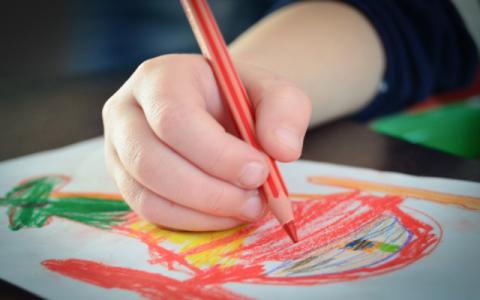
Creativity plays a central role in the development process of children: it helps them acquire many skills, boosts their self-esteem and contributes to strengthening their critical thinking, enabling them to see perspectives other than the usual ones. It not only relates to artistic skills, but also to the ability to find new solutions to problems and difficulties, which is why it is essential to foster it from an early age, in leisure time and at school. Three Days that are celebrated close to each other remind us of this: World Art Day (15 April), designated by UNESCO in 2019; World Creativity and Innovation Day (21 April), established in 2001 and officially recognised by the United Nations in 2017; and World Drawing Day (27 April), established in London in 1962 by the Association of Professional Graphic Designers. Three separate, albeit related, occasions that invite us to reflect on the importance of art and creativity.
To mark these Three Days, we would like to draw attention to a number of initiatives and various useful materials to explore the topic.
- On 15 April, on World Art Day, the online forum Art & Human Dignity: Human Rights and Healing Arts for a Culture of Peace is taking place, organised by French human rights artist and academic Guila Clara Kessous in partnership with others and under the patronage of UNESCO.
- On 25 and 26 May, the first Multistakeholder Dialogue on Art and Culture Education, organised by UNESCO in cooperation with South Korea, will take place in Paris.
- Recent years have seen an increase in the attention paid to the themes raised by the three Days, including by Italian institutions. An example is the Arts Plan, an instrument adopted every three years by decree of the President of the Council of Ministers to promote creativity, which is discussed on the page of the website of the Ministry of Education and Merit (MIM) dedicated to the subject.
- A coordinated system for the promotion of humanistic culture in schools has been set up, involving, as well as MIM, the Ministry of Culture, educational institutions including in networks, institutions of higher artistic, musical and choreographic education, universities, higher technical institutes and Italian cultural institutes.
Lastly, we recommend Le arti e l'infanzia (The arts and childhood), a bibliography on art therapy - understood as a set of approaches that enable and facilitate the construction of a supportive relationship mediated by creative activity - organised by the Innocenti Library A.C. Moro and available on the Library's website, in the "Bibliographies" section.
Other materials and news can be found on this site under the themes Education and Cultural and Recreational Activities, which can be accessed from the "Topics" navigation menu.

